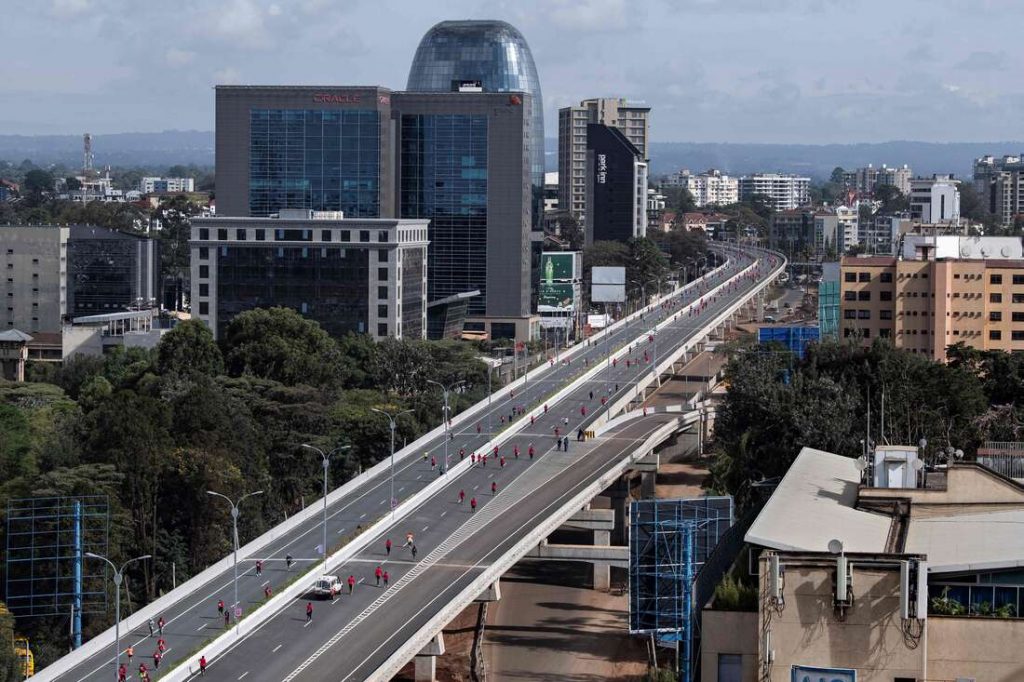Introduction
Welcome to the investor’s guide on infrastructure development in East African countries. This week, let’s inform you on the availability and quality of infrastructure critical for businesses to operate effectively. It covers transportation networks, energy supply, telecommunications networks, internet connectivity, and water supply systems. Understanding these aspects will help investors assess the potential of East Africa’s infrastructure and make informed decisions when considering investment opportunities.

Transportation Networks
Efficient transportation networks are crucial for facilitating trade and economic growth. Here is an overview of transportation infrastructure in East Africa:
- Roads: Many countries in East Africa have made significant investments in road construction, rehabilitation, and maintenance programs. Major highways connect major cities within each country as well as facilitate cross-border trade.
- Railways: Rail transport plays a vital role in connecting landlocked countries with ports for import-export activities. Governments have initiated railway expansion projects to improve connectivity across borders.
- Ports: Several ports along the Indian Ocean coastline (e.g., Mombasa Port – Kenya; Dar es Salaam Port – Tanzania) serve as gateways for international trade within the region.
- Airports: International airports such as Jomo Kenyatta International Airport (Nairobi), Julius Nyerere International Airport (Dar es Salaam), Entebbe International Airport (Kampala), among others, handle both passenger and cargo traffic.
Energy Supply
Reliable energy supply is essential for industrial operations and business sustainability. Here are key aspects related to energy supply in East Africa:
- Electricity Generation: Governments have been investing heavily in electricity generation capacity through traditional sources like hydroelectric power plants or thermal power plants utilizing fossil fuels.
- Renewable Energy Sources: The region has immense renewable energy potential that remains largely untapped. Investments into solar farms, wind farms or geothermal power projects offer sustainable alternatives while reducing dependency on traditional sources.
- Electricity Distribution: Governments are also focused on improving electricity distribution networks to ensure reliable power supply across urban and rural areas.
Telecommunications Networks and Internet Connectivity
Effective communication is vital for businesses to thrive in the digital age. Here’s an overview of telecommunications and internet connectivity:
- Telecommunications Infrastructure: East Africa has witnessed significant growth in mobile phone penetration, with extensive coverage across urban and rural areas. Mobile network operators have invested in expanding their infrastructure to provide reliable voice and data services.
- Internet Connectivity: The region has experienced substantial improvements in internet connectivity, driven by increased investment in fiber optic cable connections both domestically (within countries) and internationally (submarine cables).
- Data Centers: Investments into data centers are growing as demand for cloud computing services rises. Data center facilities support various industries by providing secure storage, processing power, and high-speed internet connectivity.
Water Supply Systems
A reliable water supply is crucial for various sectors like agriculture, manufacturing, tourism/hospitality. Considerations include:
- Water Infrastructure Development: Governments focus on developing dams/reservoirs/irrigation systems to improve access to water resources for agricultural activities.
- Urban Water Supply Systems: Municipalities invest in upgrading water treatment plants/pipelines/storage tanks/distribution networks to provide clean drinking water reliably.
- Wastewater Management: Proper management of wastewater through treatment facilities reduces pollution while ensuring sustainable use of freshwater resources.
Conclusion
Infrastructure development plays a critical role in enabling business operations within East African countries. Transportation networks comprising roads/railways/ports/airports facilitate trade flows within the region. Reliable energy supply from traditional or renewable sources ensures uninterrupted industrial activities. Robust telecommunications networks/internet connectivity accelerate digital transformation efforts supporting modern businesses’ needs. Adequate water supply systems promote agricultural productivity/manufacturing efficiency/tourism sector growth while conserving precious natural resources.
Investors should consider specific country contexts and ongoing infrastructure projects when assessing investment opportunities. Engaging with local authorities, industry experts, and consulting firms can provide valuable insights into the current state of infrastructure development and potential future developments. Investors looking to invest in infrastructure may consult investment experts in East africa By investing in East Africa’s infrastructure, investors contribute to economic growth while benefiting from improved business environments and enhanced operational efficiency.